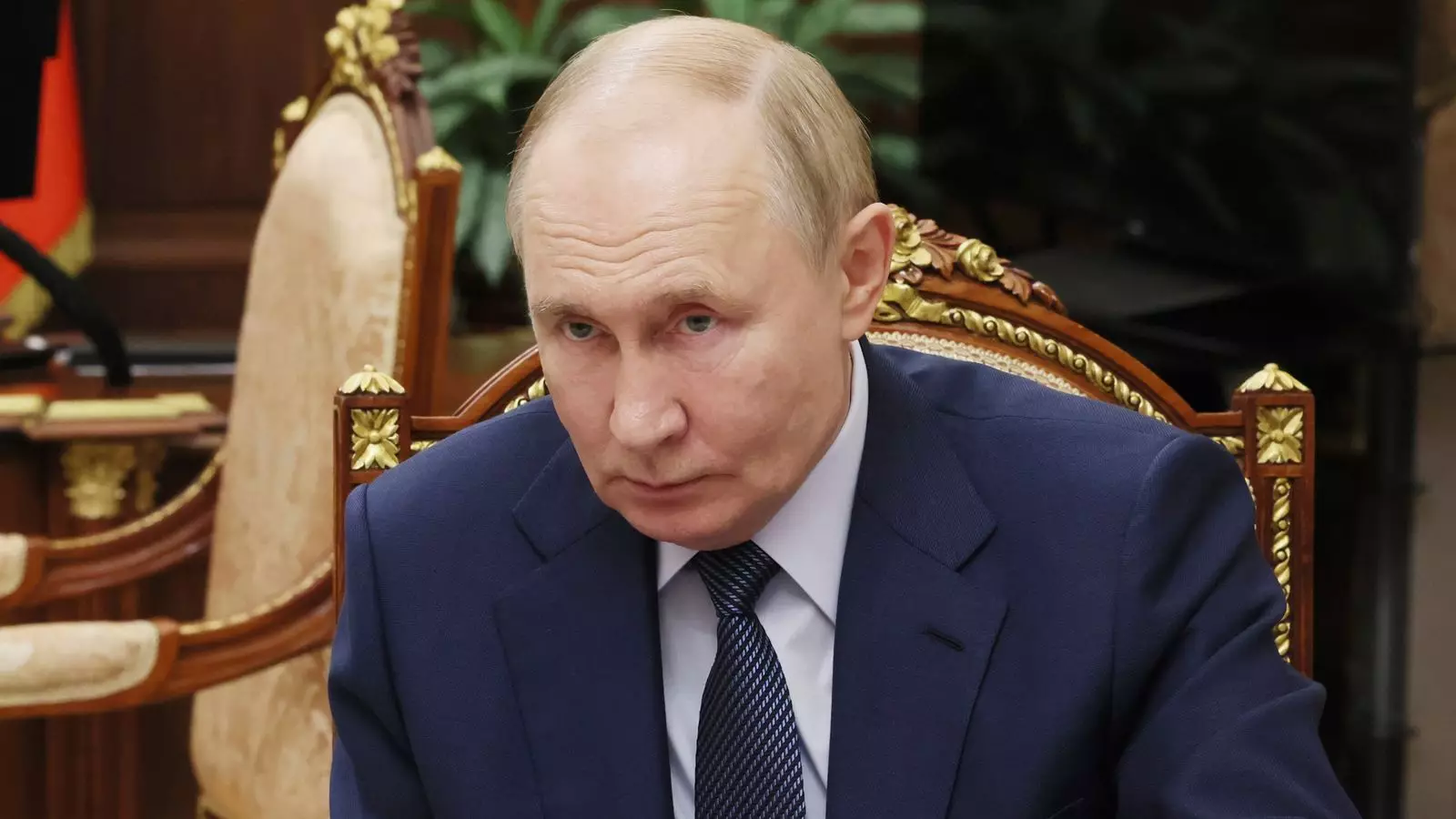In a significant move to confront the lingering repercussions of Russia’s invasion of Ukraine, the UK government has implemented a fresh package of sanctions aimed squarely at Russian oligarchs closely tied to the Kremlin. Announced on the anniversary of Vladimir Putin’s incursion, these measures are designed to prevent individuals who support the regime, gain wealth through it, or have inside connections with its upper echelons from entering British territory. The Home Office has classified these individuals as “elites” who pose a threat to the UK’s national ethos by denouncing British values while secretly benefiting from the country’s resources.
This decisive intervention sends a clear message: those who have exploited the Russian populace and contributed to military aggression are unwelcome in the UK. Security minister Dan Jarvis articulated this sentiment clearly, emphasizing the importance of border security as integral to national security. The stance taken by the UK underscores a broader effort to counteract Russian influence and to hold accountable those who are allegedly enabling the Kremlin’s actions in Ukraine.
These latest sanctions come in response to the ongoing war, which began on February 24, 2022. The UK has previously taken steps to sanction oligarchs by closing legal loopholes that allowed for money laundering. In November of the previous year, Operation Destabilise—led by the National Crime Agency (NCA)—targeted significant Russian money laundering operations, revealing the extent to which these networks facilitated not only the enrichment of oligarchs but also the financing of espionage efforts for the Kremlin.
The implications of these actions are profound. By dismantling money laundering systems that have been utilized by these elites, the UK is striving to prevent the flow of illicit funds that support Russia’s war efforts. Notably, Ekaterina Zhdanova, a key figure in one of the networks, was sanctioned by the US and is currently in custody in France. Such high-profile arrests signify a relentless commitment to delve deeper into the operations that bolster Kremlin activities abroad.
The UK government’s firm stance denotes a wider strategy to curb Russian influence not only within its borders but globally. By sending a message that oligarchs are not exempt from accountability, the UK aims to undermine the financial and social networks that support Putin’s regime. The rhetoric surrounding these sanctions also highlights the perceived threat posed by these individuals, who, despite publicly criticising Western principles, leverage the benefits afforded by living in Western countries.
As the geopolitical landscape continues to evolve, the UK’s stringent measures may encourage other nations to adopt similar stances. This could lead to a significant reduction in the Kremlin’s ability to operate internationally, compelling its allies and financial backers to reconsider their relationships with oligarchs and the Russian state. Moreover, this kind of pressure could initiate a shift in the global perception of Russian wealth and its origins, potentially diminishing the allure of Russian investments.
In a more extensive context, the ripple effects of these sanctions transcend national borders. While UK officials engage in discussions with US counterparts about the ongoing conflict, it becomes clear that solidarity among allies plays a crucial role in addressing the Russian threat. Ukrainian President Volodyr Zelenskyy has made it evident that any peace agreements negotiated without his country’s participation are unacceptable. This assertion emphasizes Ukraine’s agency in the situation, a sentiment also echoed by British Labour leader Sir Keir Starmer.
As the UK prepares for further diplomatic engagements, particularly a scheduled visit of Prime Minister Rishi Sunak to Washington DC, the eyes of the international community will be firmly fixed on the unfolding diplomatic narratives. Will the UK continue to pivot towards more assertive policies aimed at shielding its values and interests, especially in relation to a Russian state increasingly isolated due to its aggressive actions?
The UK’s latest wave of sanctions illustrates a robust and calculated response to the sustained threat posed by Kremlin-linked oligarchs. By strategically aiming to sever the financial arteries that allow these individuals to thrive, the UK is not merely confronting immediate concerns; it is also laying the groundwork for a more extensive reshaping of international norms related to accountability and governance.

